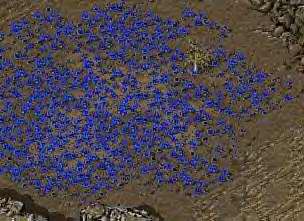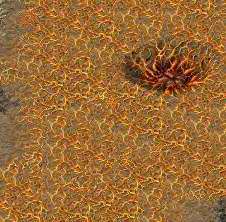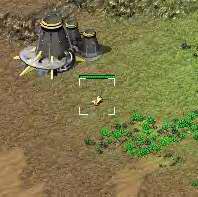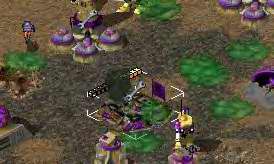
|
Game Info - Tiberium Phosphor: 42.5%
Methane: 22%
Green Tiberium:
Green tiberium was the
first known type of Tiberium. Green tiberium is very toxic and spreads
very rapidly. (Note: That weird looking thing in the middle is a blossom
tree, it creates an endless supply of Green Tiberium) Blue Tiberium:
Blue tiberium is a highly
volatile form of tiberium. Also, blue tiberium does not spread as fast
as green tiberium. Tiberium Veins:
Tiberium Veins are a natural
occurance of mutated tiberium. A tiberium vein spreads rapidly and destroys
anything it touches structure or vehicle. Viceroids: These creatures are the result of infantry that are killed by tiberium. When two meet, they become one big Viceroid that is capable of rendering harm to units and structures. They have no loyalties, so if you find one near your base it's a good idea to destroy it on sight. When found near an enemy base however, they are sometimes better left to harrass your opponent. =) Click the image above to see the viceroid move! Tiberium Gas Clouds:
These are the deadly result
of Nod's chemical missle. They are also generated by Tiberium Vein holes
(above) and will harm everything with the sole exeption of mutants.
A good counter-strategy in some of the GDI missions is to build a lone
Component Tower with nothing on it a good distance from your base. The
computer will almost always go for it and you've only lost $200. You
obviously can't expect this to work on a human opponent though. You
can't harm gas clouds, you just have to wait until they go away, so
my suggestion is either to run from them, or destroy the source. |
|
|




